Resistance from within: When Muslim women spoke to each other, for each other
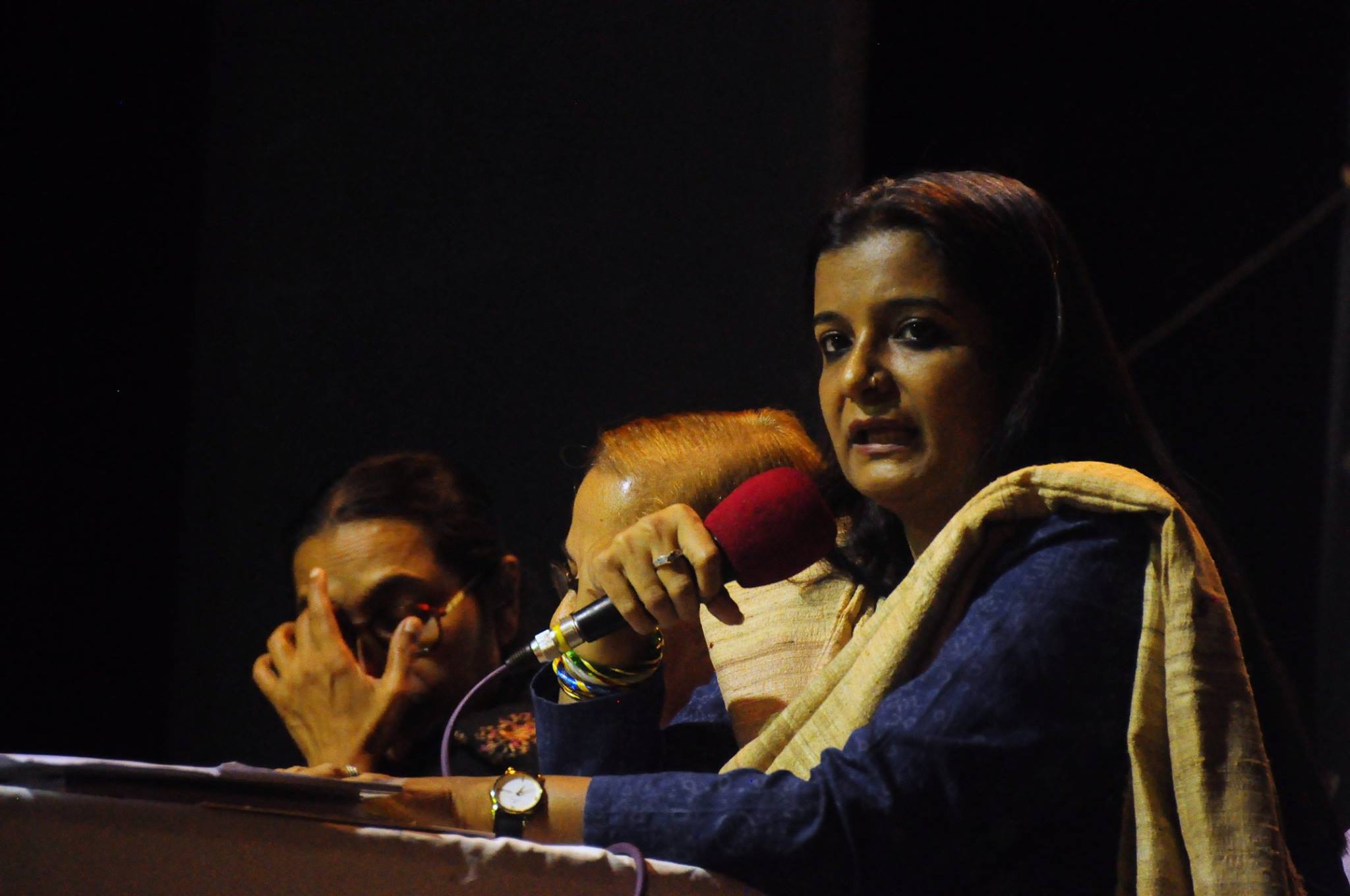
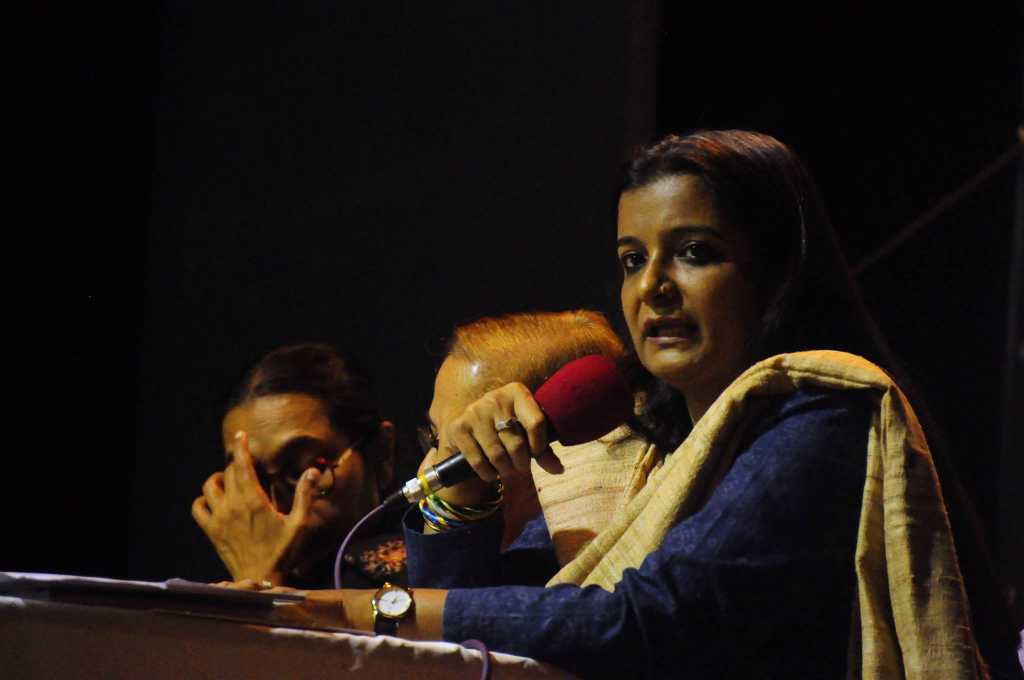
With reference to the Muslim personal law, spheres that both Khadija Banu and Noorjehan Safia Niaz have endeavoured relentlessly to reform, in the capacity of their respective organisations, includes abolishing the practice of unilateral, extrajudicial divorce or triple talaaq, banning or regulating the practice of halala marriage, and polygamy, establishing a minimum age for marriage, and guaranteeing women’s right to inheritance, divorce, and maintenance. India’s largest religious minority–the Muslim community–remains hemmed in between two legal models that foster little account of justice and emancipation. The speakers focussed on Muslim women specifically, who are confronted by the encumbrance of what can be seen as a double-bind: the parallel discrimination and vulnerability by two juridical frameworks. One of these is the formal, secular, constitutional law of the land. The other is the theologically authorised mechanism ordained at the local level. More often than not the secular and the sacred are contingent on one another to supplement and thereby reinforce gender categories. Muslim women encounter this markedly in the context of the triple talaaq.
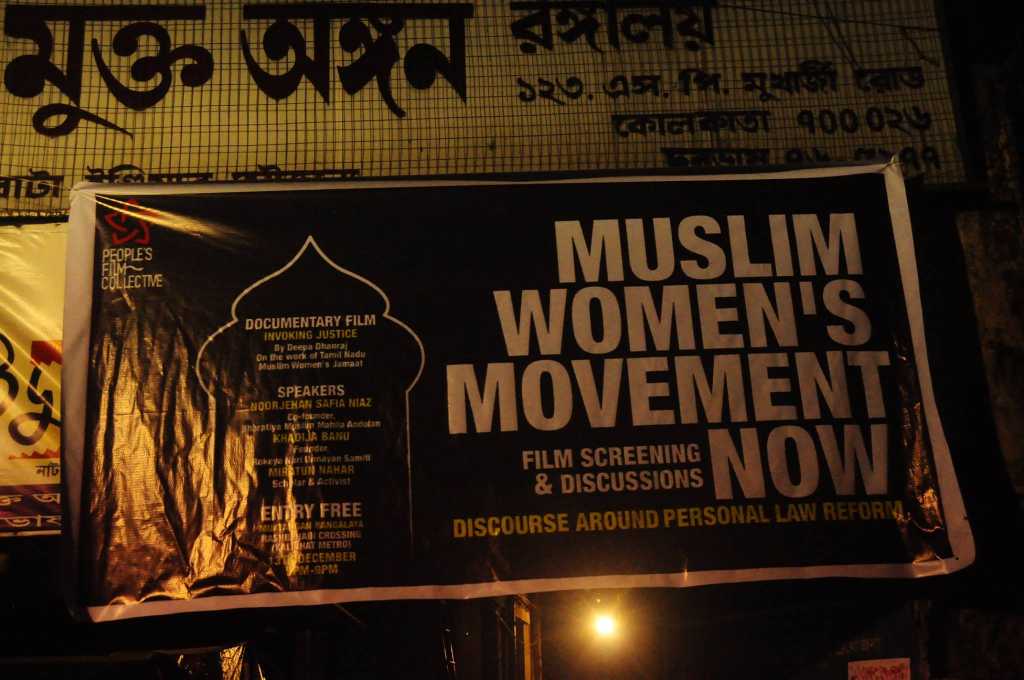
Not long ago, 35-year-old Shayara Bano, who was divorced in absentia through the medium of a letter, had petitioned the Indian Supreme Court to pronounce the arbitrary triple talaaq practice illegal, as she claimed that it violates her right to life, personal liberty, equality before the law and prohibition against discrimination - fundamental rights set down in the Indian constitution. The Muslim Law of divorce, as it is construed and put into effect in India, lopsidedly favours the man. For the divorce law to be non-discriminatory towards women, the unjust and traumatic constructs of oral talaaq, unilateral talaaq, and triple talaaq in one sitting, must go.
Both Khadija Banu and Noorjehan Safia Niaz elucidated manifold facets of divorce keeping in mind the Qur’an and the Hadith. Both staunchly discredited the tradition of triple talaaq contending that it is against the precepts of the Qur’an and the Sunnah of the Prophet, and clearly a cultural phenomenon. The ground reality is that women are being divorced for the most banal reasons, stripped of their social status and respect, and deprived of their basic rights. None of the Qur’anic guidelines of discussion, arbitration, witnesses, stipulated waiting period (idda) or even an honest effort to resolve differences are being observed. In such circumstances, the concerns of alimony or the rights of children are relegated as non-issues. Drawing upon miscellaneous case studies documented by them apropos women and divorce, Khadija Banu furnished statistics and analysis of the implications and impact of divorce on women in Murshidabad, a predominantly Muslim region in West Bengal. She spoke of the rising incidence of triple talaaq and the ensuing pauperization of a burgeoning number of women and children among Muslims. Khadija Banu described how categories of divorce admissible under the Muslim Personal Law and prevalent in society, was antithetical to the spirit of the Qur’anic injunctions, and that this has licensed an apathetic, casual attitude towards women. She advocated for change in the Muslim Personal Laws pertaining to divorce in India to protect women – explicitly those in disadvantageous economic situations – from exploitation in marriage. The existence of such laws makes wives singularly defenceless, and anxious vis-à-vis their marital status.
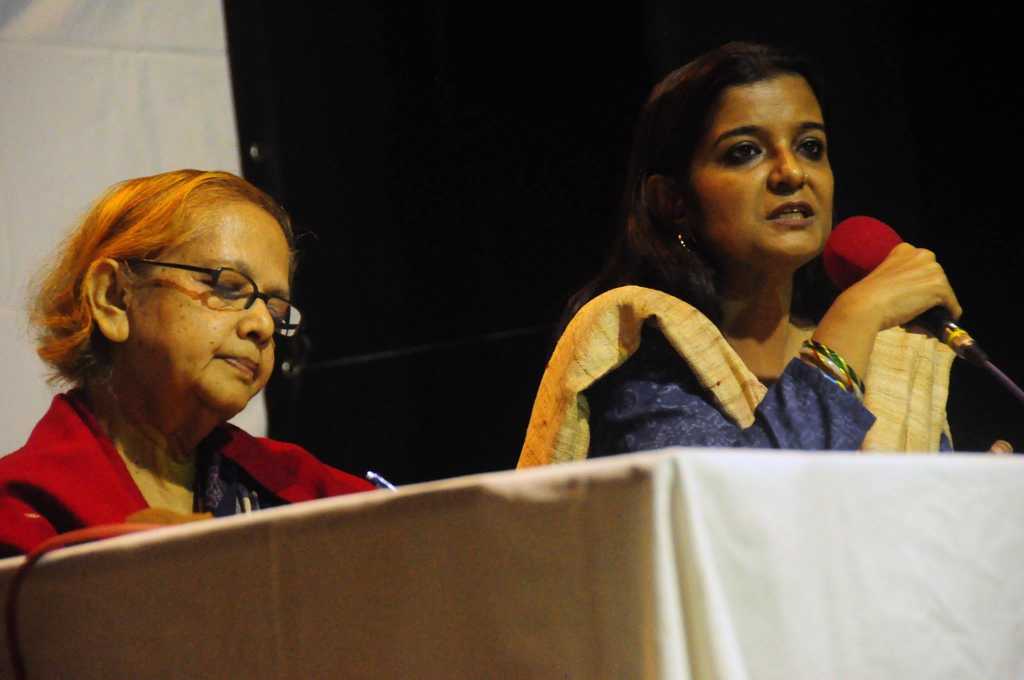
Noorjehan of BMMA underscored how the procedure of triple talaaq has been made illegal in 22 Muslim majority nations, but continues to be authorized in India under the aegis of the Muslim Personal Law (Shariat) Application Act of 1937, which proclaims that matters relating to the Muslim community’s personal disputes, the state will not interfere and a religious body will instead pass judgments. As Noorjehan pointed out, the Shariat Application Act of 1937 does not unambiguously delineate the contents of these laws. She went on to say that even in present day, post-independence India, Muslim personal law – apart from a few half-baked attempts – has not been codified, and its existent ambiguities are open to the exegesis of the religious authorities. One reason for this has been the unwillingness of consecutive governments that have come to power to act intrusive or embroil itself in issues of the community’s personal law, and take a chance with alienating the Muslim leadership, whose allegiance and electoral support they want to ensure. Thus, the governments in attempts to placate Muslim religious leaders have pandered to their sensitivities, bestowing concessions as the Congress government did in the controversial Shah Bano Case (in the form of introducing a regressive legislation – Muslim Women [Protection of Rights on Divorce] Bill – which exonerated the husband from paying maintenance), looked the other way in cases of legal discrimination faced by Muslim women, and have also overlooked alternative, dissenting, progressive voices within the Muslim community. The successive governments in power have thus un-problematically assumed that the Muslim community is exclusively a religious community, that the Muslim Personal Law Board (whose members aren’t even elected) and Ulemas are its sole representatives, and that there exists a consensus within the community about the Muslim personal laws themselves – a payoff damaging to women and to questions of gender justice, by definition.
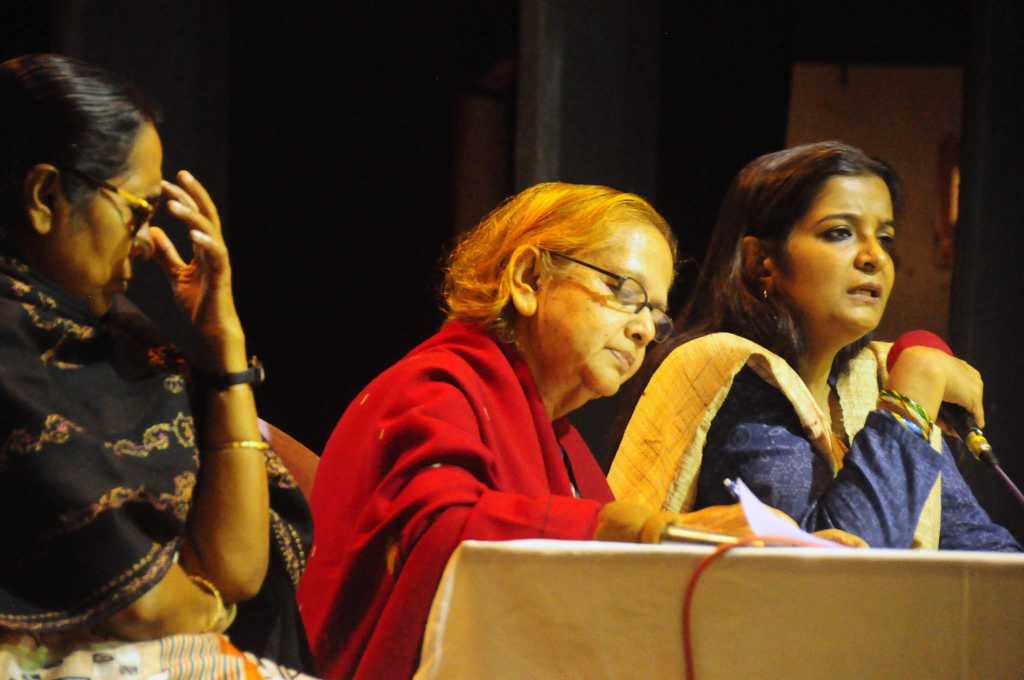 Noorjehan Safia Niaz unequivocally disparaged the tradition of halala as it exists in our society, which she posits as an innovation and its warped understanding, in essence, as being un-Qur’anic. The botched perception of halala is that the former husband, on realizing his error in divorcing his wife on a whim, expediently plays impresario to facilitate a marriage of his former wife to another person expressly contracted for this scheme, impels the newly-weds to consummate this marriage, and then also pre-arranges a swift divorce in order to maneuver legitimacy for his remarriage with her. The divorced woman’s humiliation and agony is, thus, complete. Noorjehan mentioned that there are reported incidents of Qazis volunteering themselves for this short-lived, instrumental second marriage. The notion of halala, Noorjehan claimed, was being distorted, and second marriage (meant to be an optional and voluntary prerogative for a divorced woman) being made requisite by the interpreters of Shariat, thereby institutionalizing atrocity over divorced women and robbing her of the agency granted to her by the Qur’an. The twisted cognizance of halala could also be seen as a corollary added by the very apologists of the farcical triple talaaq as recompense sans accountability for the man.
Noorjehan Safia Niaz unequivocally disparaged the tradition of halala as it exists in our society, which she posits as an innovation and its warped understanding, in essence, as being un-Qur’anic. The botched perception of halala is that the former husband, on realizing his error in divorcing his wife on a whim, expediently plays impresario to facilitate a marriage of his former wife to another person expressly contracted for this scheme, impels the newly-weds to consummate this marriage, and then also pre-arranges a swift divorce in order to maneuver legitimacy for his remarriage with her. The divorced woman’s humiliation and agony is, thus, complete. Noorjehan mentioned that there are reported incidents of Qazis volunteering themselves for this short-lived, instrumental second marriage. The notion of halala, Noorjehan claimed, was being distorted, and second marriage (meant to be an optional and voluntary prerogative for a divorced woman) being made requisite by the interpreters of Shariat, thereby institutionalizing atrocity over divorced women and robbing her of the agency granted to her by the Qur’an. The twisted cognizance of halala could also be seen as a corollary added by the very apologists of the farcical triple talaaq as recompense sans accountability for the man.
In a political climate of deep-rooted anti-Muslim prejudice, intermittent Islamophobic violence, and thriving Hindu aggression, one of the overriding, logical suspicions of the Muslim community en masse about the calling for a ban on the triple talaaq entails that the discourse of gender equality, and the discourse of the ‘protection’ of Muslim women are a smokescreen for the expansion of the dominance of a Hindu-majority state into the realm of minority group autonomy.
Also, it seems imperative to italicize that, any opposition to or questioning of Muslim community’s gender-biased practices which have the blessings of its religious leadership – the vanguards of the identity group – is rendered to be a threat to the group's jurisdiction and validity in the political macrocosm.

From the Muslim woman’s point of view, the dilemma resides in the monophonic insistence on the unity and homogeneity of community identity by its Ulemas, defined and confined in the grammar of family codes enshrined in the religious personal law, which results in Muslim women having to cave in their demands and rights for showing solidarity to their Muslim community identity. Muslim religious leaders’ routine (and rehearsed) defence is that Muslim personal law cannot be amended since it is entrenched in the Shariat. On the contrary, Khadija Banu reminded us, change isn’t new or unprecedented as regards Muslim law at all, and that the Ulemas, the sole exponents of Muslim personal law, have tolerated reform and modifications to that law in many instances. So, it seems that introducing reform to the personal law is seen as a threat only where issues of women’s rights are concerned.
Nonetheless, where Muslim group's identity assertion and influence is predicated on its separateness, and independence from the majority religion culture, group leaders appeal for a kind of primordial fealty and uncritical conformity to the status quo, thus, stonewalling any attempts at introducing progressive reforms. Noorjehan spoke of how conservatives at the All-India Muslim Personal Law Board, in reaction to the fascist BJP government’s floating the idea of the implementation of the Uniform Civil Code, launched themselves into a mass mobilized movement touting that Islam was in danger. Muslim community identity was being reduced to mere preservation of the un-Qur’anic, un-Islamic practice of triple talaaq, singularly. She said that a more intelligent and nuanced response from the All-India Muslim Personal Law Board to the UCC debate, could have been to counter the government’s attempts at politicizing and communalizing the bogey of Uniform Civil Code (which, interestingly, does not even exist in blueprint as yet) by in turn, asking why the country’s other, numerically smaller religious minorities (Parsis, Sikhs, etc.) were not being asked how they felt about the imposition of a Uniform Civil Code, or for that matter, what the Hindu majority thought about it. Because of escalating anxiety surrounding religious identity, the practice of triple talaaq came to be projected by the Muslim leadership as symptomatic of cultural relativism, and a site of resistance of the community’s integrity and identity against assimilation and integration in what is a Hindu-majority nation.
The expedient recourse to cultural relativism by the AIMPLB in this context not only shut down meaningful dialogue on Muslim women’s rights and reproduced unequal power relations, it has also accelerated the congealing and reifying of religious identities and freezing of certain practices.
The feminist intervention in remedying the legal vulnerability of women (belonging to a minority religious domination as Muslim women are) can be one of formulating a volitional egalitarian civil code – something along the lines of Ayelet Shachar’s joint governance proposition in Multicultural Jurisdictions: Cultural Differences and Women’s Rights (2001) that endorses individual preference in a scenario of plural jurisdictions. In Shachar’s blueprint, individuals have the power to choose as there would be an free-access between the state and the community that would facilitate people to circumvent or sidestep power structures they find prejudiced against them: an individual who feels wronged by her or his identity group can resort to the state for relief; likewise, if the individual experiences injustice from the government, she or he can seek justice within the jurisdiction of the community. The pros of presenting an optional instead of a binding civil code with a categorically gender-just fabric makes inroads for contesting asymmetrical dissemination of power within families and communities without falling back on the necessary intrusion of the state’s own authority into these realms (as would be the case in the event of the imposition of UCC). The element of choice is a rare nuance in that it takes the state up on its supposed commitment to ensuring gender justice and egalitarian relations, and sees whether it follows through, or whether it’s a ruse employed by the state to extend its own dominion.
Noorjehan Safia Niaz’s spirited statement that what she and by extension BMMA were about was “Islam ko feminist nazariye se dekhne ki koshish.”. She posited that she draws strength and validation from the Qur’an and that she was fighting for reform in keeping with the Qur’an. This has resonance in Islamic feminism that has sprung out of Middle-Eastern and North African countries, not simply from these cultures but one that engages Islamic theology textually and through canonical traditions, where Muslim women are turning to the Qur’an to empower themselves with their haq/rights and justice that it grants, and claiming equality hinged on the Qur’an ideal of equality of all insaan / human beings. There is a growing need to contemplate just how the Qur’an treats a salient feature of post-marriage life, i.e., divorce, and to discern how progressive it really is on this question, before it came to be reduced to a set of laws slanted in favour of men.
The author has completed M.Phil in Social sciences at Centre for Studies in Social Sciences, Kolkata.
